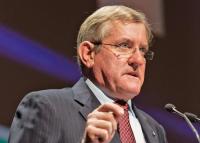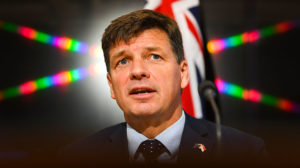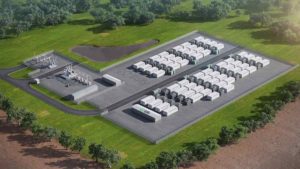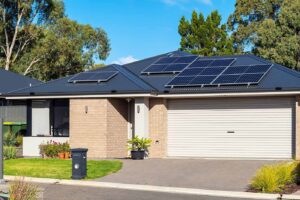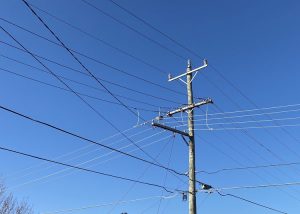Ian Macfarlane, the Coalition energy spokesman and likely future Energy Minister, today told the Australian clean energy industry that it needed to look beyond wind and solar as renewable energy sources, because they were unreliable and too expensive.
Instead, he said, Australia needed to give more emphasis to emerging technologies such as wave energy – and specifically cited wave energy technologies that are being developed by Carnegie Wave Energy.
“It’s time to show that there is more than wind and solar,” he told the Clean Energy Week conference. “The future of renewable energy in Australia needs to be more diverse.”
Macfarlane said the Coalition would continue to give bipartisan support to the 20 per cent Renewable Energy Target, but refused to commit to retaining the fixed target of 41,000GWh – saying he would be guided by the conclusions of a review by the Climate Change Authority. He said while the Coalition supported the RET, it wanted to see evidence that the development is done in a cost-effective way and to the nation’s interests.
He also repeated the Opposition’s intent to repeal the carbon tax – “no ifs, no buts” – and to close down the $10 billion Clean Energy Finance Corporation (CEFC) which, ironically, is designed to help bring forward alternatives to wind energy. He described it as a fund that uses “taxpayers money to buy shares in green energy projects that the private sector will not support.”
Macfarlane said both wind energy and solar PV technologies were in danger of losing community support, if they hadn’t already.
He pointed to the cost of renewables as imposing a cost on households of around $130/year, which he described as “unbearable” burden on households. (Most of this cost came from large-scale renewables, the rest from small-scale. This is out of total bills of around $2,500, more than half of which are made up of network costs).
He expected wind energy would remain the dominant source of renewable energy under the RET, but said there was “significant community anxiety and resentment in regard to wind turbines.” While not all of that resentment was based on science, he noted, it did need to be addressed.
He said solar PV had taken off, but only due to poorly designed political quick fixes with tariffs imposed by populist (read Labor) state governments. He said these unsustainable schemes were shifting enormous costs on households that do not have solar.
Instead, he said, Australia should focus on areas of natural advantage, such as wave energy and solar hot water. He said he would like to see geothermal be successful, but was becoming “impatient” with its lack of success.
RenewEconomy’s view:
Macfarlane gave a typically blunt assessment, but his speech highlighted just how the clean energy debate in the US between the Democrats and the Tea Party-inspired Republicans is infiltrating Australian politics, through the state governments and into the federal arena.
The basic premise is ideological. On the right, it means perpetuating myths about renewable energy and ensuring it is described mostly as expensive and unreliable. It aims to slow, rather than hasten, its deployment, all the while suggesting that the “real” solution is “just around the corner” – it just needs to brew in a test tube for a little while longer.
Hence the focus of Macfarlane’s speech on Carnegie Wave Energy’s CETO wave energy machine, possibly a fine technology, but – unlike solar and wind – a long way from commercialisation and, as Macfarlane admits, not one that will bother the incumbents in the next decade.
It also explains the Coalition’s support for ARENA (the $3.2 billion Australian Renewable Energy Agency) – which grants funds to R&D and admirable early-stage projects such as Carnegie’s – but not for the CEFC, which will grant money for commercialisation. The Republicans have a similar approach. Bjorn Lomborg is their most brazen advocate.
Just after Macfarlane was railing about the “unbearable costs” of solar and wind, a view that he said was widely held in the community, and which the Conservatives have helped perpetuate, the US firm Sungevity outlined more of its plans to bring solar PV to the mass market in Australia with zero-down rooftop solar packages that would allow households to offset rising grid prices – most of which are caused by soaring network costs. Solar PV is offering a cost-effective avenue to a clean energy future across all demographics, but the political class don’t get this yet.
And after Macfarlane spoke, Steve Sawyer, the secretary-general of the Global Wind Energy Council, was outlining how wind energy was a cheaper alternative to fossil fuels in places such as Brazil, the US (compared to coal), and in parts of Europe (compared to gas).
The greatest inconsistency in Macfarlane’s argument is his approach to schemes such as the CEFC, which he says uses “taxpayers money to buy shares in green energy projects that the private sector will not support.” But that is exactly what ARENA does – and that is the nature of the state and federal grants that he enthused about for Carnegie Wave Energy – and its demonstration project would not have been built in Australia if it relied only on private money.
And that is exactly what the Coalition’s Direct Action policy proposes through its geothermal towns and wave energy projects – taxpayers money to buy shares in green energy projects that the private sector will not support – but just not at anywhere near the scale of the CEFC.
Follow @gilesparkinson‘s reports from Clean Energy Week 2012 on Twitter – #cew2012

